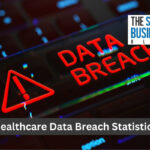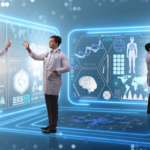Any hospital or medical office that uses medical transcription benefits greatly. A huge benefit for any practice is that transcriptionists can convert audio recordings made by medical professionals into written notes that can be kept in the patient’s records. It’s crucial to comprehend why you require this service in order to get the most of employing it. Let’s quickly examine why medical transcribing is so important to your business.
Post Contents
How Does Medical Transcription Work?
Medical transcription is the process of turning healthcare dictations into thorough, accurate transcripts for patient records. Depending on the information that needs to be recorded—such as doctor’s orders, results of lab tests, X-rays, and more—the transcription technique varies. These crucial pieces of information are carefully typed up from voice notes provided by nurses and doctors equally with the aid of expert transcribers.
Who Can Use Medical Transcription Services?
Medical transcription services provide doctors, nurses, and other healthcare professionals with a reliable source of data for their patients’ medical records. These transcribers ensure that the proper information is delivered promptly and accurately so that medical professionals have access to the most recent information regarding the treatments provided for patients’ ailments, whether they are present or not.

Communication between healthcare providers could be revolutionized by transcription services, making it easier for them to coordinate care. They can more effectively evaluate the treatment alternatives available and put a plan of action into motion by facilitating improved communication between coworkers.
With transcription services in place, doctors may spend more time helping patients instead of spending it continually replaying recordings or looking up handwritten notes. The old joke about a doctor’s handwriting is one that we’ve all heard, but when someone’s life is at stake, it’s not quite so funny.
With the support of transcription services, patients, carers, and other community members who might need assistance comprehending medical information or expressing their needs can all benefit.
Medical Reports Available For Transcription
Since it may comprise dictations about prescription drugs, diagnoses, physician orders, laboratory test results, tests, and X-ray reports, transcribing medical data is a challenging process. To ensure accuracy when transcribing such information, one must consider the transcript’s intended use.
Detailed Clinical Reports
In a doctor’s office, these are essential for providing patients with treatment instructions. These could contain X-rays, the results of laboratory tests, and other health-related data.
Management Reports
Health information is regularly included in medical reports. Medical professionals can create a suitable plan of action for each patient and fully explain their diagnosis by using these documents.
Diligent Administrative Records
The treatment plans, insurance information, and other aspects of a patient’s care must all be thoroughly understood by an office manager. For an office manager to be effective and offer thorough service, these are necessary elements.
Reporting Compliance: Ensure Long-Term Success
Compliance reports may include information regarding a patient’s visit with their healthcare provider among other things. These details could include the appointment’s time and date, who showed up, and how long they saw the doctor.
Several Benefits of Using Human-Based Medical Transcription Services
Human-based medical transcription services can help medical institutions like hospitals and clinics make the most of their transcripts. These businesses hire seasoned experts who have finished specific training in transcribing and proofreading a range of healthcare-related papers. As a result, your audio recordings will provide results of the highest caliber.

Human-powered services frequently use skilled medical transcriptionists who can comprehend the nuances of complex medical terminology. To put it another way, they don’t take everything that is said at face value.
For instance, if a doctor recommended 1,000 mg of a drug when only 100 mg is generally prescribed, a professional transcriber would pick this up right away but an automated speech recognition technology wouldn’t.
Medical personnel can benefit greatly from being aware of a patient’s past when treating them. You may obtain thorough, accurate records that will enable you to make well-informed decisions about their care by working with qualified medical transcriptionists. Healthcare professionals are in the best possible position to deliver great care when they have access to such a well-organized library.
Conclusion
Medical transcription services should be used to simplify healthcare communications and promote coordination. Since accuracy is essential to this industry, any time lost as a result of communication errors must be kept to a minimum. It will be simpler for them if healthcare experts can communicate with one another in an easy method.






























